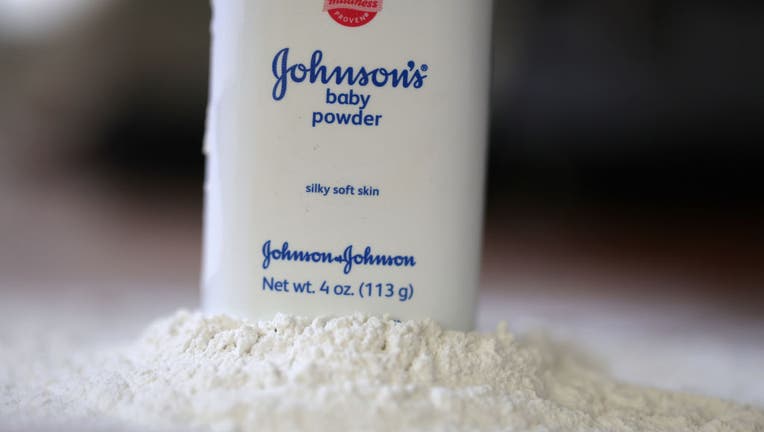Minnesota to receive over $10M in Johnson & Johnson talcum lawsuit settlement

SAN ANSELMO, CALIFORNIA - APRIL 05: In this photo illustration, a container of Johnson and Johnson baby powder is displayed on April 05, 2023 in San Anselmo, California. Johnson & Johnson announced an agreement on Tuesday to pay $8.9 billion (Getty Images)
ST. PAUL, Minn. (FOX 9) - Johnson & Johnson reached a $700 million settlement with several states, including Minnesota, regarding a lawsuit alleging the use of deceptive marketing for talcum-based powder products.
Attorney General Keith Ellison announced on Tuesday that Minnesota will receive more than $10.5 million over three years as part of the settlement.
The settlement stems from a lawsuit alleging that Johnson & Johnson was marketing its talcum powder products as "safe" and "pure" but failed to inform consumers about the potential asbestos present in its products, and did not disclose the safety concerns, such as cancer, associated with it, according to the Minnesota Attorney General's Office.
"Minnesotans need and deserve accurate information about the safety of the products they buy. Johnson & Johnson fell short of that expectation and the law when they misled consumers about the safety and purity of their baby powder, which put women’s lives at risk," Attorney General Ellison said in a statement. "I’m proud to be part of a bipartisan coalition of states that held Johnson & Johnson accountable. It should serve as a warning that we will not tolerate corporations that deceive the people of Minnesota."
As part of the agreement, Johnson & Johnson is set to pay out a total of $700 million to Minnesota and 42 other attorney generals. Additionally, the company is required to permanently stop the manufacturing, distribution, sale, marketing and promotion of all products containing talc powder in the United States, according to Ellison.
While the state has reached an agreement, the Minnesota Attorney General’s Office said consumers with personal injuries related to talc powder may still be compensated through a separate court process.
The other states involved in the lawsuit include Alabama, Alaska, Arizona, Arkansas, California, Colorado, Connecticut, Delaware, District of Columbia, Florida, Georgia, Hawaii, Idaho, Illinois, Indiana, Iowa, Kansas, Kentucky, Maine, Maryland, Massachusetts, Michigan, Minnesota, Montana, Nebraska, Nevada, New Hampshire, New Jersey, New York, North Carolina, North Dakota, Ohio, Oklahoma, Oregon, Rhode Island, South Dakota, Texas, Utah, Vermont, Virginia, Washington, West Virginia, and Wisconsin.

